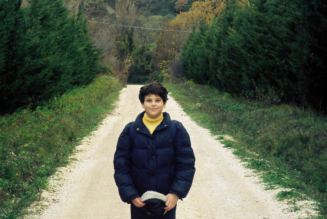Perhaps the most overlooked truth about human life is that we are made for contemplation. All of us. It’s not that our activist and practical age directly rejects this. Almost worse, our customs, practices and expectations take for granted that anything called contemplation is simply peripheral.
Josef Pieper expresses a radically different worldview, that of both Greek philosophers and Christian theologians:
Not only in the life to come, but also in his material existence in history, man is, to the very roots of his being, a creature designed for and desiring vision; and this is true to such a degree that the extent of a man’s happiness is only as great as his capacity for contemplation.
Here is a point with dramatic practical implications, a foundation from which we can reconceptualize and reform our life from end to end. According to this view, contemplation—which we can define here as a loving, intellectual gaze upon ultimate realities—is not just the highest of human activities, but it also gives meaning, direction, and purpose to all other activities.
Let us take for granted this radical assertion about our contemplative identity, leaving a defense and fuller explanation for another time. How might we begin to observe this truth about human nature in our daily life? I have three suggestions.
1) Make quiet-time an end, not a means.
The point here is to reconceptualize our quiet time, and so better to prioritize it. We often take the view that ‘we better make quiet time, otherwise the rest of our day won’t go well,’ with the implication that this contemplative time is basically a means to enrich the other things we do. Good contemplative time will certainly enrich and animate the rest of the day. But it will do this best when it is recognized and practiced for what it is—the time that should be the richest of the day.
Aristotle expressed this very clearly: contemplation is most desirable for its own sake; it does not serve other ends; it has the character of being an end in itself. It isn’t easy to feel this—given that contemplative activity requires much of us and so can seem a chore. But at least we can set our sights, and our heart, on giving our contemplative time the place it deserves. Length of time is not so important as the conviction and attitude with which we carve it out, recognizing its primacy in our day.
2) Heal and grow the imagination, starting with the natural world outside our door.
‘Imagination’ here refers to the power of soul that retains and recalls sense images. Images provide the diet of our mind; where our imagination is or is not, there our thoughts are or are not.
This is a vast, wonderful, and challenging topic. The philosophers refer to images (they call them ‘phantasms’) that lead to higher thoughts versus images that hinder and distract from higher thoughts. This can become a regular part of our intentionality—how am I avoiding the images that undermine and seeking the images that enhance my contemplation? This grounds a whole approach to entertainment, technology, work, leisure and indeed what we do in all corners of our day.
A simple place to start is with the images that are always wholesome and life-giving, the images of God’s creation. These images are endlessly fruitful, if we but harvest them, treasure them, savor them, share them, and grow from them.
3) Share one insight a day with your spouse, or a friend.
Aristotle says that good conversations are the heart of friendship. A great unnoticed casualty of our overly-busy-hyper-practical-non-contemplative-mindset is that our friendships languish—often especially in marriage. Yes, good practical conversations are the bread and butter of relationships. But the entrée must be those conversations that go further, that are not simply about what are we going to do next. Nothing says ‘I love you’ and ‘I want to share my life with you’ like sharing an insight, a reflection, or just some issue we are wrestling with. We can start on this today. We don’t have to a be philosopher or saint. We just have to be human.
Most of us must devote the majority of our time to the wonderfully practical aspects of human life. But this commitment and duty in no way precludes honoring the primacy of the contemplative. On the contrary, it presupposes and demands that we grasp our ultimate identity and make this truth operative in every aspect of our life. For, every one of us is a creature made for vision, ultimately a vision that is beatific, that ‘beatifies,’ or renders us whole and fully alive. ~ ~ ~
Our most recent PODCAST is THE FAMILY PIG: ITS PLACE IN OUR HOME. Here’s a tiny excerpt:
AND, SIGNUP FOR THIS SUMMER’S LIFECRAFT DAY AT THE BARN Husbandry and Wifery: Reclaiming the Practical Arts for a Flourishing Household
Here is VIDEO EXPLAINING CONTEMPLATION:
Husband, father, and professor of Philosophy. LifeCraft springs from one conviction: there is an ancient wisdom about how to live the good life in our homes, with our families; and it is worth our time to hearken to it. Let’s rediscover it together. Learn more.









